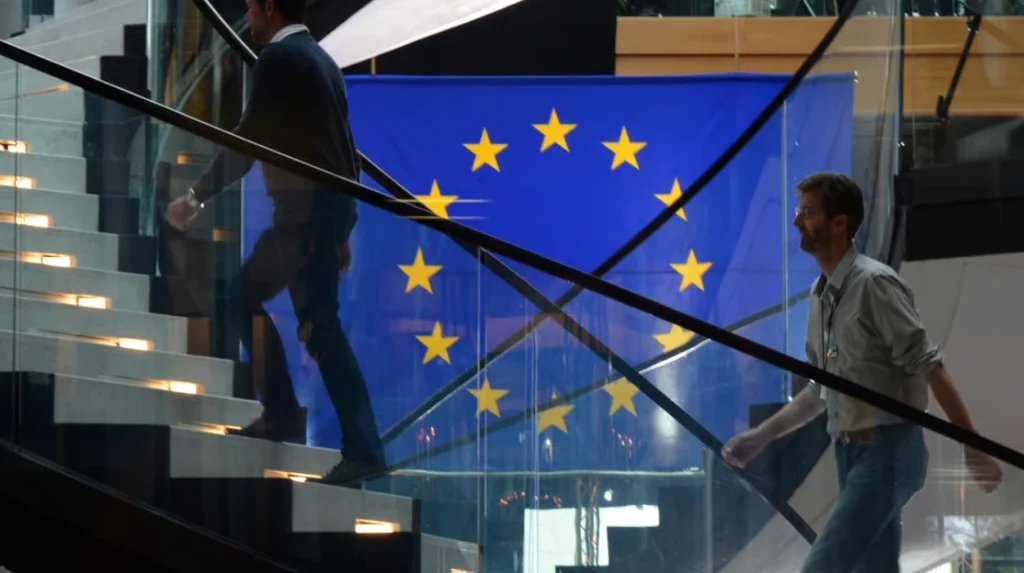The European Union’s new lobbying rules in 2025 aim to strengthen democratic integrity by enhancing transparency and accountability in lobbying activities without restricting legitimate civic participation. These updated regulations emphasize clear registration requirements, disclosure obligations, and ethical standards designed to protect democracy while allowing interest representation to continue in a fair and open manner.
Overview of the EU’s 2025 Lobbying Rules
In 2025, the EU has reinforced its framework governing interest representatives commonly known as lobbyists—through legally binding measures that replace previous voluntary systems. All lobbyists who seek to influence EU policymaking, whether representing corporate, civil society, or foreign entities, must register in the EU Transparency Register. This register publicly details who lobbyists represent, their objectives, budgets, and meetings with EU officials.
The new rules specifically cover interactions with Members of the European Parliament (MEPs), European Commission officials, and Council representatives. MEPs are barred from accepting gifts or payments over a set threshold and must report meetings with lobbyists promptly for public scrutiny. A notable provision is a mandatory “cooling-off” period, preventing former MEPs from lobbying the Parliament for six months after leaving office, although some view this timeframe as insufficient.
Compliance with these rules is now more enforceable, with stronger sanctions for breaches ranging from reprimands to suspension or exclusion from Parliament. Overall, the legislation seeks to balance enhanced oversight with the need to preserve legitimate participation from all interest groups, ensuring diverse inputs into EU governance without undue influence or corruption.
Transparency and Accountability Mechanisms
At the heart of the 2025 regulations is an expanded transparency regime. Lobbyists must disclose their activities twice yearly, including the dates, places, and subjects of meetings with EU officials. The public availability of this data creates reputational accountability and deters clandestine influence efforts.
The European Parliament’s Code of Conduct for MEPs incorporates mandatory meeting disclosures and prohibits conflicts of interest, such as undisclosed outside employment that could affect legislative decisions. However, enforcement challenges remain due to the self-policing nature of the system and political reluctance to impose harsher penalties on peers.
Additionally, these rules reinforce the distinction between legitimate civic engagement and illicit lobbying. Engaging the public and non-governmental organizations remains encouraged, with the EU emphasizing protecting the right of citizens to participate in policymaking debates without facing burdensome restrictions or fear of reprisal.
Lobbying Restrictions and Ethical Standards for MEPs
The 2025 rules for Members of the European Parliament outline specific restrictions aimed at preventing corruption and conflicts of interest:
- MEPs cannot accept money or gifts exceeding €150.
- All scheduled meetings with lobbyists must be transparently reported.
- MEPs must avoid activities that could create direct conflicts, including certain paid external roles.
- Former MEPs face a mandatory six-month ban on lobbying the Parliament.
While these provisions are designed to uphold ethics, critics argue that the cooling-off period is too short and that enforcement lacks rigor, allowing some ethical breaches to go insufficiently punished. These loopholes contribute to ongoing concerns about the genuine effectiveness of lobbying oversight and raise questions about whether political self-regulation is adequate.
Challenges and Loopholes in EU Lobbying Regulation
Despite progress, the EU lobbying framework faces notable challenges. Transparency is limited largely to activities inside formal EU institutions, while lobbying in informal settings such as conferences, think tanks, or third-party events remains less regulated. This creates opportunities for influence to occur outside public view.
Another difficulty is the relatively weak enforcement mechanisms. The current system relies heavily on MEPs self-reporting their lobbying interactions and adherence to ethical standards, which sometimes leads to incomplete disclosures and conflicts of interest. The large number of registered lobbying organizations almost 14,000 and the political complexity of the EU Parliament create hurdles to stringent enforcement.
There is also criticism of the short cooling-off period for former MEPs and the permissiveness surrounding MEPs’ outside employment in roles that might intersect with EU policy. All these factors fuel skepticism about whether the rules adequately prevent undue influence or corruption while maintaining democratic openness.
The Balance Between Protecting Democracy and Encouraging Civic Engagement
The EU’s 2025 lobbying reforms strive to strike a critical balance: guaranteeing that policy development is transparent and accountable while ensuring the democratic right of citizens and organizations to engage with their representatives.
By mandating registration, disclosures, and ethical standards, the EU aims to protect decision-making from hidden influences and corruption risks. Simultaneously, it promotes an inclusive approach where stakeholders ranging from business interests to NGOs and citizen groups can participate in shaping policies affecting millions.
This approach recognizes that lobbying is an essential feature of democratic governance, enabling diverse perspectives and expertise to inform legislation. The challenge remains to continuously improve oversight and enforcement, limiting abuses without stifling legitimate advocacy and public involvement.







